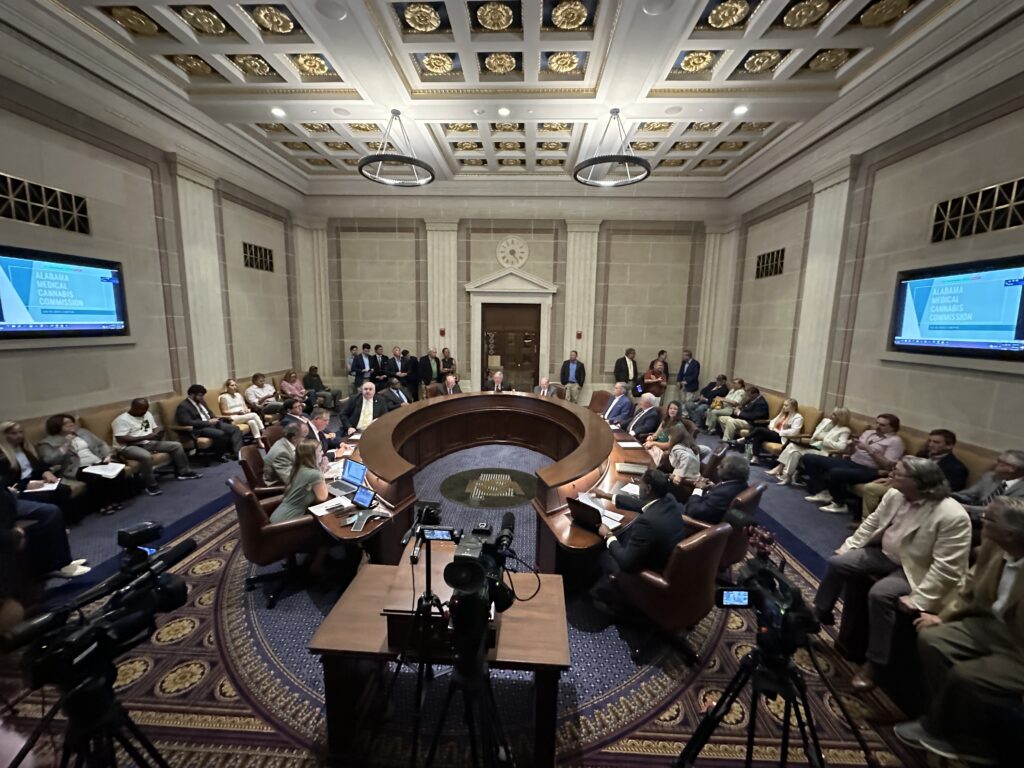Alabama Medical Cannabis Commission Sets December Goal for Licensing Amid Legal Challenges
Alabama — After navigating through a series of legal hurdles and procedural delays, the Alabama Medical Cannabis Commission (AMCC) is now targeting December to finalize industry licenses, a move that its chairman describes as part of an “aggressive” timeline. This latest development comes as the commission attempts to recover from a summer marked by regulatory obstacles, as reported by WIAT.
The commission’s recent decision to rescind previously issued licenses and establish a fresh timeline indicates a determined effort to get the medical cannabis program operational, with aspirations to make products available by spring. The initial licensing process encountered significant setbacks when the AMCC discovered “potential inconsistencies” in the scoring of applications, leading to an abrupt halt and reassessment.
Complications intensified when allegations of the AMCC’s violation of the state’s Open Meetings Act arose, resulting in legal action from seven license applicants and the imposition of a temporary restraining order. This legal entanglement necessitated the voiding and reissuance of licenses and led the AMCC to the conclusion that it needed to “start back at square one.”
Despite an administrative stay issued last month aimed at rectifying the course, the commission faced an additional lawsuit from an applicant alleging a wrongful criminal implication against one of its principal members. However, with new rules recently adopted and the licensing reset for the third time, the AMCC appears cautiously optimistic about meeting its end-of-year licensing objective.
Chairman Rex Vaughn of the AMCC communicated to WIAT that beginning November 27, the reevaluation of applicants will commence, relying on both presentations made directly to the commission and application scores provided by the University of South Alabama. In this round, commissioners have the discretion to “choose to disregard the previous scoring,” acknowledging the possibility that earlier evaluations were flawed.
As the AMCC forges ahead with this revised timeline, stakeholders and applicants are watching closely, hopeful that this “aggressive” approach will bring the state’s medical cannabis program to fruition without further legal impediments or administrative delays.


































